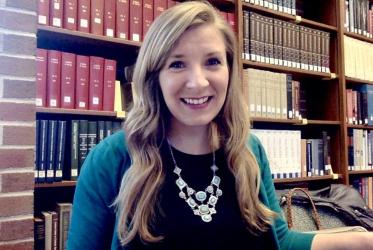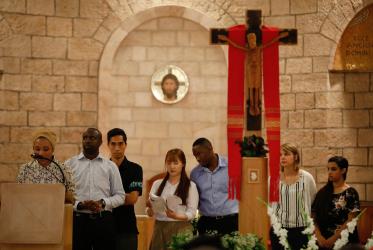Displaying 61 - 80 of 121
Faces of Hope raises awareness
07 March 2018
Many ready to observe World Week of Peace in Palestine and Israel
15 September 2017
WCC gravely concerned over Israel’s travel ban
09 March 2017
From Bethlehem, WCC general secretary: “Together we are stronger”
08 December 2016
WCC general secretary reflects on peace in Palestine and Israel
20 September 2016





